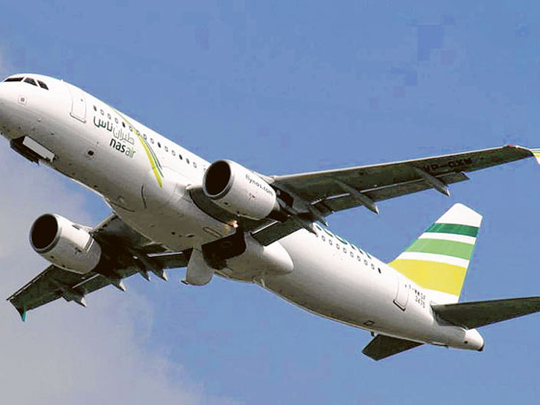
Saudi Arabia's announcement that it will open its domestic aviation market to Gulf airlines is an important step forward in the integration of the regional economy, not least because it will provide the capacity to further develop the tourism and travel sectors across the Gulf Cooperation Council (GCC).
The move comes at a time when tourism and travel are gaining in importance worldwide, accounting for up to 12 per cent of gross domestic product (GDP) in many countries and an astounding 20 per cent in Dubai and some other places.
The reason that both the UAE and Qatar have managed to make significant strides in this respect is due to their efforts to develop tourism, entertainment and transport infrastructure, while at the same time using their national airlines to forge connections with densely populated cities in the West and East.
Airlines in both countries contributed in a big way to attracting large numbers of visitors from the GCC countries too, a fact which underscores the importance of airlines in developing the tourism sector, and one which highlights its potential in terms of GCC countries' strategies to diversify sources of income.
In terms of tourism in the Gulf in general, the sector is unlikely to be able to match the growth experienced elsewhere in the world. Despite the sheer number of historic and tourist sites in the Gulf, there are many challenges in transforming them into viable destinations, including the logistics of getting to them and a lack of facilities in the vicinities of many of them.
Direct connection
For example, almost every GCC country lacks direct flights to attractive locations in summer, including the southern regions of Saudi Arabia and Oman, which boast an average temperature of 20 degrees in July and August. It is far easier for tourists to travel to South East Asia and even North America than to reach Najran in Saudi Arabia or Dhofar in Oman.
This demonstrates the importance of Saudi Arabia's recent opening up of its domestic aviation market. It will allow successful and fast-developing companies such as Emirates, Etihad, Qatar Airlines and Air Arabia to launch direct services, be it between GCC countries and tourism locations or between Saudi cities. Low-cost carrier Air Arabia has announced that it will launch a new route to Saudi Arabia, starting in November, from its primary hub in Sharjah to the Saudi city of Yanbu.
It goes without saying that the Saudi market is too big to be served by a single carrier, Saudi Arabian Airlines, for now. The airline is unable to meet demand by way of internal air transportation, especially as it has its own obligations and is fully booked all year round due to the Haj and Umrah. The Saudi decision will also contribute to energising the tourism sector and attracting investments. It will also provide job opportunities for nationals, being a sector that is among the largest employers in many countries. It will also boost the contribution of the tourism and transport sectors to GDP.
But from a Gulf perspective too, the move will give significant impetus to the Common Gulf Market and integrate the air transport sector between GCC countries. It will also lower costs of transport — including transit flights — across the GCC.
Other GCC countries — especially Oman — could learn from this move.
If Oman were to take similar steps to upgrade its tourism and transport sectors between Omani cities, it could provide better links to heritage and tourism locations that have not been fully exploited.
Visa formalities
To go further, GCC countries could ease the transport hitch of changing flights between individual countries and re-ignite the argument for a common Gulf ‘Schengen visa', which will actively contribute to developing one of the most promising economic sectors.
At the same time, we should consider this move a positive start in opening Gulf markets to each other to include other sectors that are still restricted. These moves will reflect positively on business, investors and the economies of each GCC country.
Dr Mohammad Al Asoomi is a UAE economic expert.












